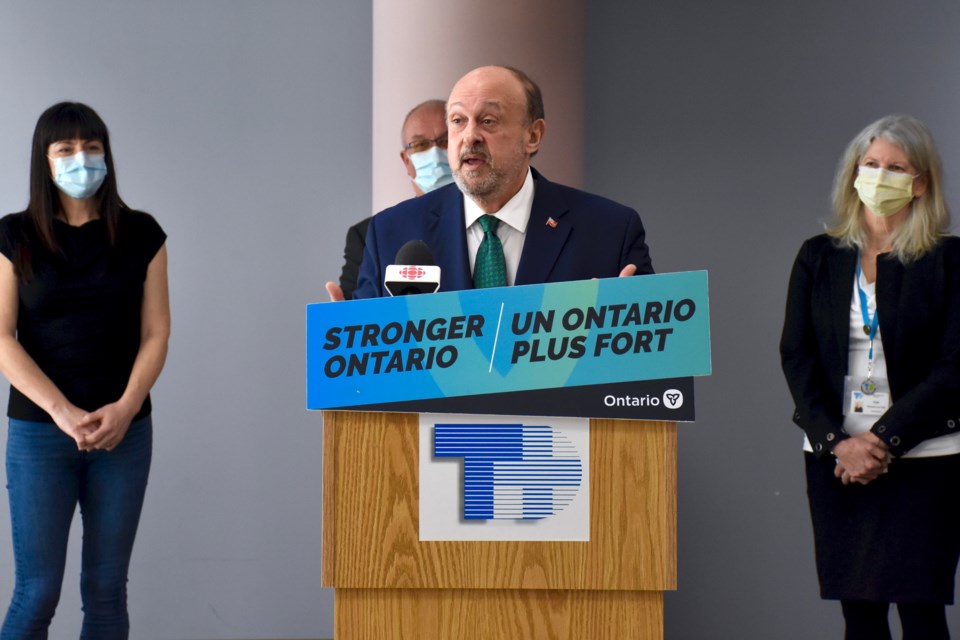When Associate Minister of Mental Health and Addictions Michael Tibollo first visited Timmins, he sat down with two doctors who shared how the unique work they're doing is helping people function again.
"And the period of time that they were able to do it in, it’s transformational. It needed to be looked at, it needed to be encouraged and supported by our government,” he said.
Today, Tibollo was back in town to announce $2.3 million for 15 new addictions treatment beds at the Jubilee Centre and Timmins and District Hospital (TADH).
It will bring the Jubilee Centre's complement of treatment beds to 18 from its current 10.
At TADH, two new addictions treatment beds, two new supportive treatment beds and three new withdrawal management beds are being added through the Addictions Recovery Fund. In addition, the province announced $880,000 in base funding for seven additional withdrawal management beds through the 2021 Ontario Health Request for Proposals for new adult addictions beds.
“This really proves at this time that we can build a system that has capacity to serve those people who are most in need in our community. We have to meet the urgency of this crisis and this is what this is proving right now,” said Dr. Louisa Marion-Bellemare has been leading the drive for change in the city with Dr. Julie Samson.
Today's announcement, said Marion-Bellemare, is making them socially accountable to their patients in the community.
"We need to start looking at what our patient needs and helping them and that’s a very strong piece here," she said.
There have previously been no acute withdrawal management services in the community, said Marion-Bellemare.
"If somebody presented to our hospital asking us for help with their addiction, we actually didn’t have anywhere where we could immediately place that person to get them medical help for their withdrawals. The difference we have now is we have an immediate place where people can access medical care for withdrawal treatment,” she said.
The goal of acutely stabilizing people from their withdrawal symptoms is to then allow them to go on to the continuum of care, she explained.
The new beds will create new jobs at TADH and the Jubilee Centre.
TADH president and CEO Kate Fyfe said the funding will allow the hospital to expand its two acute withdrawal medical beds to a full 10-bed unit.
At the Jubilee Centre, executive director Harry Jones said the beds will open in the next fiscal year.
There will likely be a roll-out of the beds, he said, as they have to hire more full-time staff. The centre will also need extra equipment for the beds.
“And the pandemic has slowed a lot of things down on the supply chain area and it’s also made it difficult for us to recruit, and not just us — for everybody to recruit. How fast we go is greatly going to depend on those factors,” he said.
There is absolutely a need for the additional beds, said Jones
The provincial standard for someone wanting to get into a residential treatment bed is a 30-day wait time. At the Jubilee Centre, he said the wait is about three months.
“It should at least cut the wait time in half unless there’s more clients coming into the system then what we’re actually predicting and that could happen,” he said.



